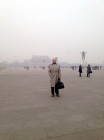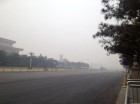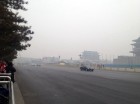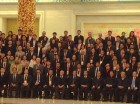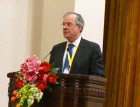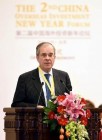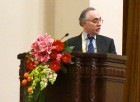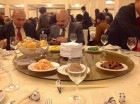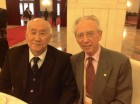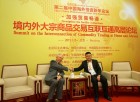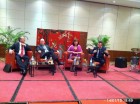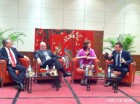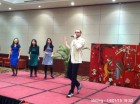On 15 January, after leaving the Great Hall of the People I crossed Tiananmen Square. Pollution was horrendous, one of the worst days in months: well over AQI 500. See the pictures.
Beijing has a big big challenge really to clean that up.
As I explained to the European Chamber, the Beijing Government is under severe pressure to solve the pollution problems. Targets to reduce PM2.5 have not been met and the Central Government is starting to pressure Beijing: solve it, otherwise you will get in BIG trouble (won’t say here what they actually meant by that…)
Both SCMP and China Daily reported on the issue. In short, the only way to solve the problem:
– reduce the population now estimated (officially) at 21.52 million (my estimate is much higher);
– make Beijing an expensive city to live in: expensive subway, expensive housing, no relaxation of home ownership;
– reduce polluting traffic;
– remove as much industry that requires a lot of manpower and is polluting;
– close down 36 large markets including wholesale markets for clothing (near Beijing Zoo);
– increase green and agricultural belts around the city;
– in short make the city unwelcoming for migrants, industry and “others”.
For a taste, read this:
24 January 2015 – Beijing to limit population growth this year
By ZHENG JINRAN/CAO YIN (China Daily)
http://europe.chinadaily.com.cn/china/2015-01/24/content_19394122.htm
There is more about that on China Daily.


